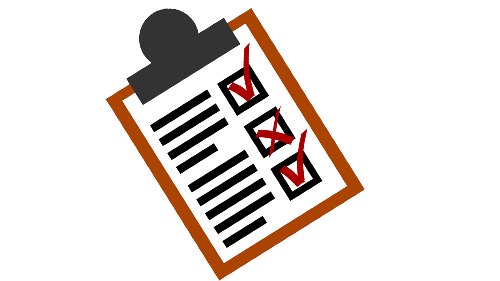My First Apartment After College: Move-in Checklist
Whether you’ve just finished college, have finally decided it’s time to move out of mom and dad’s or are experiencing apartment living for the time after owning your own home, your first apartment is more than just four walls. It’s a new life. And with this new life comes new adventures and, new responsibilities. So, before you start popping the champagne and planning your first housewarming, ensure you’re ready with this helpful checklist from Greystar. We’ll share a number of important things you should know before moving into your first apartment.
Deposit FYI: Understanding what you’ll need to pay at lease signing is important. Requirements will vary by community, but you should anticipate paying the first month’s rent, last month’s rent, a security deposit and any applicable pet or amenity fees. Be sure to clarify this with your leasing professional.
Read the lease, then read it again: As boring as it may seem, a thorough reading of your lease is extremely important for knowing your responsibilities as a resident. It not only informs you of crucial information, like when your rent is due each month, but also lets you know when you’re required to give the community manager your notice of vacating should you need to move at the end of your lease. This will help you avoid getting charged extra fees down the road so you can save money for more important things— like stocking the refrigerator and decorating. Many communities offer electronic lease documents that are always accessible or you can keep an extra hard copy in a safe place so you can refer back to it when questions occur.
Know what’s included and what’s not: Don’t let the excitement of moving into your first apartment fade when you realize you’ll be hosting your housewarming in the dark. While the rent in some apartment communities may include electricity, water, Internet and cable, many require that you sign up for these services on your own. Prior to moving in, make sure you have clarified what additional services you need and what companies you are eligible to choose from at that particular community. Plan ahead, because electric and cable companies usually don’t have same-day turnaround on hooking you up. Imagine not having Internet or cable service for a week because you didn’t think ahead.
Confirm the parking rules at your community. Do you have an assigned space? Do you need an electronic access card to enter the parking area? Don’t forget to ask about guest access and parking too.
Be sure to clarify if renter’s insurance is required at your community. Today, many communities require proof of renter’s insurance prior to move-in. This is also a great time to confirm all of the maintenance services included in your rent, as well as how and when you can access the included amenities at your community.
Scheduling your move-in: Reservations are required. Just like many of your favorite restaurants, most communities require that you reserve a move-in date and time, in advance. This helps the community ensure your move-in experience is smooth. The community staff will make certain that you have appropriate access to elevators (so you aren’t competing with other new residents for the elevator cab) and a parking area for your delivery truck. This is especially important for high-rise communities where parking for large vehicles and access to elevators may be at a premium. Be sure to ask your leasing professional about the final inspection/walk-through process to ensure your new apartment home is move-in ready.
Rent payment 411: As a renter, it is important to maintain a good rental history by paying your rent on time each month. Rent for an entire month is due and payable on the first of each month. If rent is not paid by the deadline per the lease, a late fee will be charged to your account. Your community is not able to accept cash payments of rent, a partial payment of rent, rent paid by anyone other than an individual on your lease agreement, or rent paid with multiple checks. In certain situations, your rent payment will first be applied to fees, damages or other charges on your account before it is applied to your rent for the month. Most communities feature an online “resident portal” that offers electronic payment options, including recurring payment setup.
Speaking of resident portals: Most resident portals allow you to submit maintenance requests and renew your lease, in addition to making rent payments. Many communities also offer additional services like reserving amenity spaces for a private event, connecting with other residents through the community’s social network and package delivery alerts. Speak to community manager for help accessing the portal, understanding its capabilities and setting up your account.
Oh no he didn’t: Just like any good host, you’re responsible for your guests’ actions at all times. This is part of your duties as a leaseholder. If one of your visitors decides to blast music at 3 a.m. or cause damage to the community, whether in your apartment or the public spaces, you must assume responsibility for those decisions.
Budget like a boss: Living the good life requires discipline. Setting up a budget for moving into your first apartment is always a good idea. Whether you do this using an Excel document or mobile application, add up what bills you have due on a monthly basis, estimate what recurring payments you have (i.e. student loans or car payments) and calculate how much money you have leftover. Decide what percentage you can afford to put into savings and how much you need to support your free time. Always leave some cushion for the unexpected and that awesome house-warming party.



